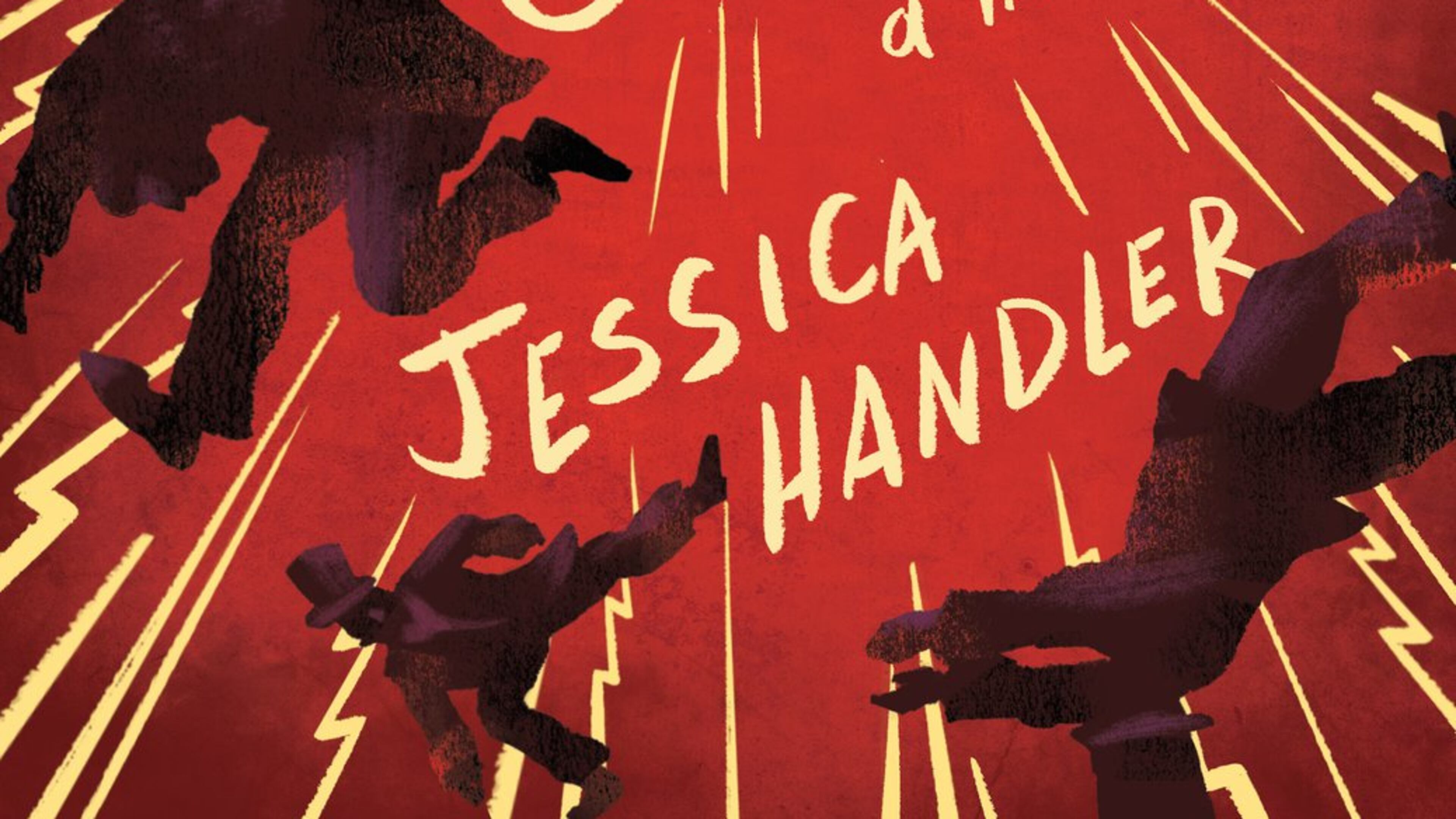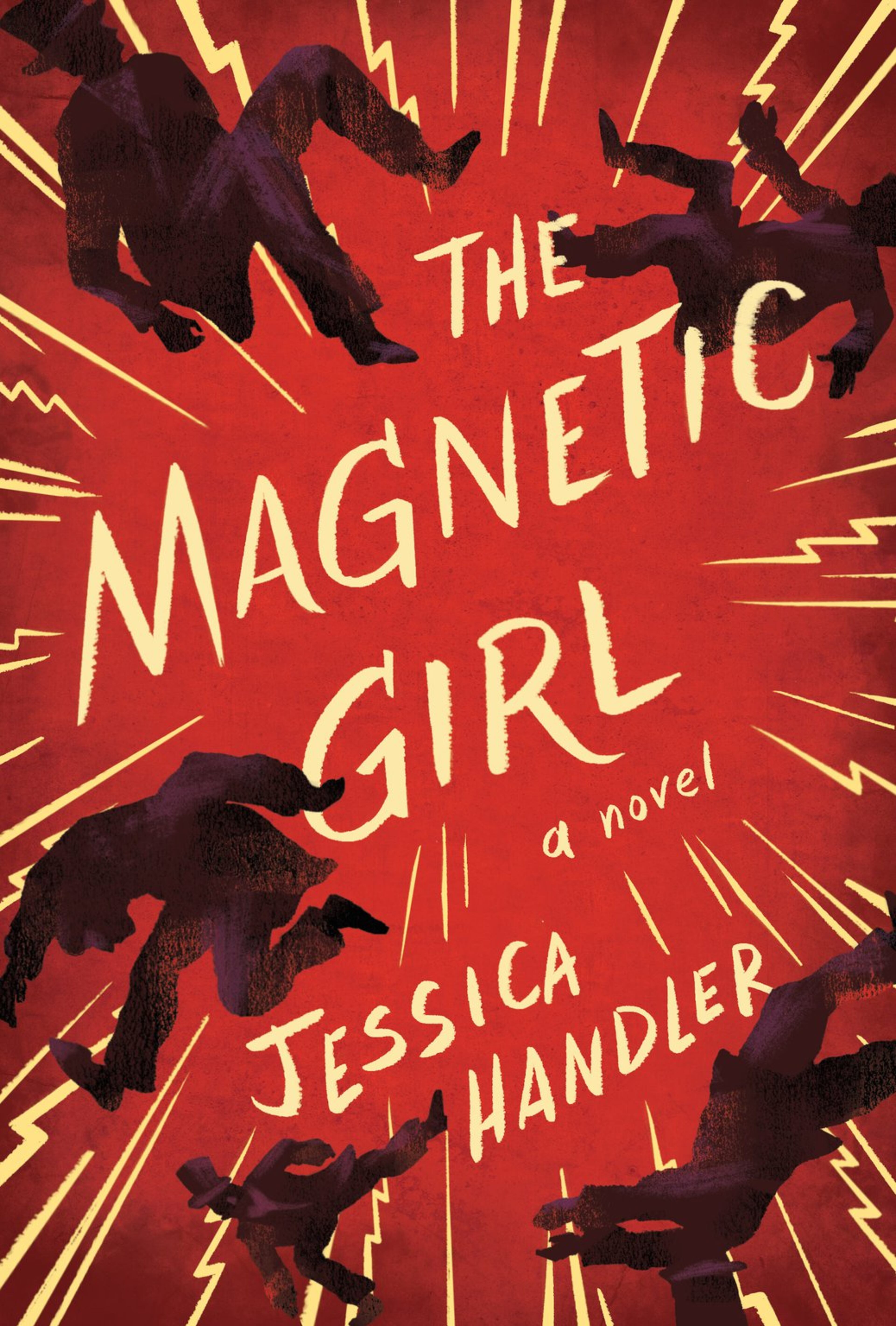Stage tricks and girl power captivate in ‘Magnetic Girl’

Like today’s youth attempting to understand existence before the Internet, no human alive can truly know what life was like before electricity. Try as we might, we are unable to fully grasp just how fundamentally different the world was without the luxury of commanding such a power.
Jessica Handler's debut novel, "The Magnetic Girl," transports us to a time shortly after the discovery, an era when those who didn't live in big cities like Paris or New York — having never laid eyes on a light bulb before — were left only to read in the newspaper about the dangerous "artificial light more brilliant than a thousand suns."
The historical novel is inspired by Lulu Hurst, a real woman from North Georgia who could purportedly overpower large men by conducting a current of electricity with the touch of her hand. When people heard tale of this teenage girl’s ability to throw men across the room or lift them in a chair via her inexplicable electrical charge, they flocked to see her on stages across the East Coast.
Handler weaves a framework for such gullibility by emphasizing what a mysterious marvel electricity was in the late 19th century, such as when Lulu reads the national news that the wealthy “Mrs. Vanderbilt dressed for a ball in a gold and silver electrified gown and called herself ‘The Electric Light.’” (A relevant pairing for this book is last year’s “A Well-Behaved Woman: A Novel of the Vanderbilts” by Therese Anne Fowler, which dedicates nearly a page to this dress.)
Despite being based on the real Lulu's 1897 autobiography and other non-fiction records, Handler's account is fiction — a first for the Atlanta author and Oglethorpe University faculty member best known for her memoir "Invisible Sisters" and a guide to writing about grief, "Braving the Fire." With "The Magnetic Girl," Handler has boldly breathed to life a compelling protagonist who is at once relatable and disquietingly unapproachable. Instead of feeling that Lulu's thoughts are invented ideas written for the page, readers sense they have a direct line to another person's undiluted conscience — and all the weirdness that comes with being privy to another's personal musings. It's the kind of writing that makes you shift in your seat, but not dare leave it.

Lulu often becomes overstimulated by sights, sounds and smells that don’t seem to faze others, making her feel like a trespasser. She gives in to odd urges, such as poking her skin or mattress with something sharp: “Stabbing a pin through the thick cloth and feeling it pop through to the burlap inside satisfied an itch behind my knees and along the edges of my teeth.” When Lulu’s visiting cousin mistakes the sound of a pin rupturing mattress paired with the flashes of a lightning storm to be God bringing “the power of an electrified city into” Lulu’s rural home, it quickly sets off a chain of events that lead to Lulu becoming a performance artist.
Lulu’s father — no stranger to using others’ vulnerabilities to his advantage, as we learn through a flashback of his time as a Civil War soldier — jumps at the chance to exploit his daughter’s unintentional trick for his family’s financial gain. He teaches her how to “manufacture the impression of great feats of strength” by positioning her body and applying pressure against grown men in such a way that they’re fooled into feeling powerful sensations. Lulu enjoys the lessons because they mean bonding time with her distant father and the promise of travel beyond her small Georgia town.
She also uses them to develop what she considers her real power of “captivating” people, inspired by an old book she finds in her father’s study, in which a “lady writer” describes her experience beguiling people. Lulu believes that by catching another’s gaze and lowering her eyelids, she can stop time for herself and her subject, whether it be her teacher or a fox who runs toward her like a “black-footed bullet.” Lulu hopes that perfecting this technique could be used to heal her younger brother of an ailment for which she secretly takes responsibility.
As Lulu’s dad assumes the role of stage father and arranges a multi-city tour starring his daughter, his greed and controlling behaviors come to light. An emotional chasm materializes between Lulu and her parents when she realizes they look down upon the very theater world they installed her in, a world she’s come to love despite the cutthroat deception surrounding it. The chasm is deepened when a climactic and deadly event takes place during a performance in New York, sending the family running back home.

The public perception of Lulu starts to shift, and she begins to view her performer persona as someone “deluded by avarice and shame.” The act earns a gigantic sum for her once poor family, but the tour leaves them forever changed, with sorrow never far off for the child performer. “I wanted to smash something and feel it break, and I wanted to cling to someone who loved me.”
This is a story that gets at the core of what it’s like to be alive, honing in on modern day feminist anxieties through the lens of a distant time when electricity was glamorous instead of merely a technological afterthought. Handler provides a touching look at how human desire doesn’t always equal what is right, and the result is an astonishing tale that does not pander or falter, but crackles with magic.
FICTION
‘The Magnetic Girl’
by Jessica Handler
Hub City Press
280 pages, $27

